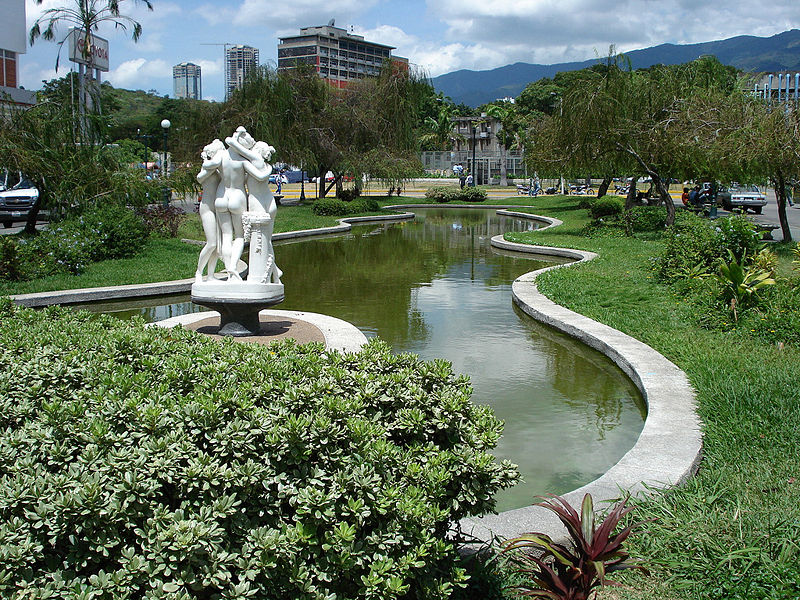The climate of Caracas is intertropical, with precipitation that varies between 900 and 1,300 millimeters (35–51 in) (annual), in the city proper, and up to 2,000 millimeters (79 in) in some parts of the Mountain range. The annual average temperature is approximately of 22.5 °C (73 °F), with the average of the coldest month (January) 22 °C (72 °F) and the average of the warmest month (May) 24 °C (75 °F), which gives little annual thermal amplitude, of 3°C. The daily thermal amplitude is greater (more than 10°C/50°F), superior to 30 °C (86 °F), that rare times descend to less from 25 °C (77 °F). In the months of December and January abundant fog may appear, in addition to a sudden nightly drop in temperature, until reaching 13 °C (55 °F) or less, this peculiar weather is known by the natives of Caracas as the Pacheco. In addition, nightly temperatures at any time of the year usually do not remain above 20 °C (68 °F), which results in very pleasant evening temperatures. Hail storms appear in Caracas, although only on rare occasions. Electrical storms are much more frequent, especially between June and October, due to the city being in a closed valley and the orographic action of Cerro El Ávila.

Caracas is contained entirely within a valley of the Venezuelan central range, and separated from the Caribbean coast by a roughly 15 km expanse of El Ávila National Park. (This group of mountains is greatly appreciated by the natives of Caracas for its beauty and wealth, and for being a place for natural recreation.) The valley is relatively small and quite irregular, the altitude with respect to sea level varies from between 870 and 1,043 meters (2,854–3,422 ft), with 900 meters (2,953 ft) in the historic zone. This, along with the rapid population growth, has profoundly influenced the urban development of the city. The most elevated point of the Capital District, wherein the city is located, is the Pico El Ávila, which rises to 2,159 meters (7,083 ft). The main body of water in Caracas is the Guaire river, which flows across the city and empties into the Tuy river, which is also fed by the El Valle and San Pedro rivers, in addition to numerous streams which descend from El Ávila. The La Mariposa and Camatagua reservoirs provide water to the city.
Caracas has five municipalities: Baruta, El Hatillo, Chacao, Libertador and Sucre. The constitution of Venezuela specifies that municipal governments be divided into executive and legislative branches. The executive government of the municipality is governed by the mayor, while the legislative government is managed by the Municipal council. In March 8, 2000, the year after a new constitution was introduced in Venezuela, it was decreed in Gaceta Official N° 36,906 that the Metropolitan District of Caracas would be created, and that some of the powers of these municipalities would be delegated to the Alcaldía Mayor, physically located in Libertador municipality.
|